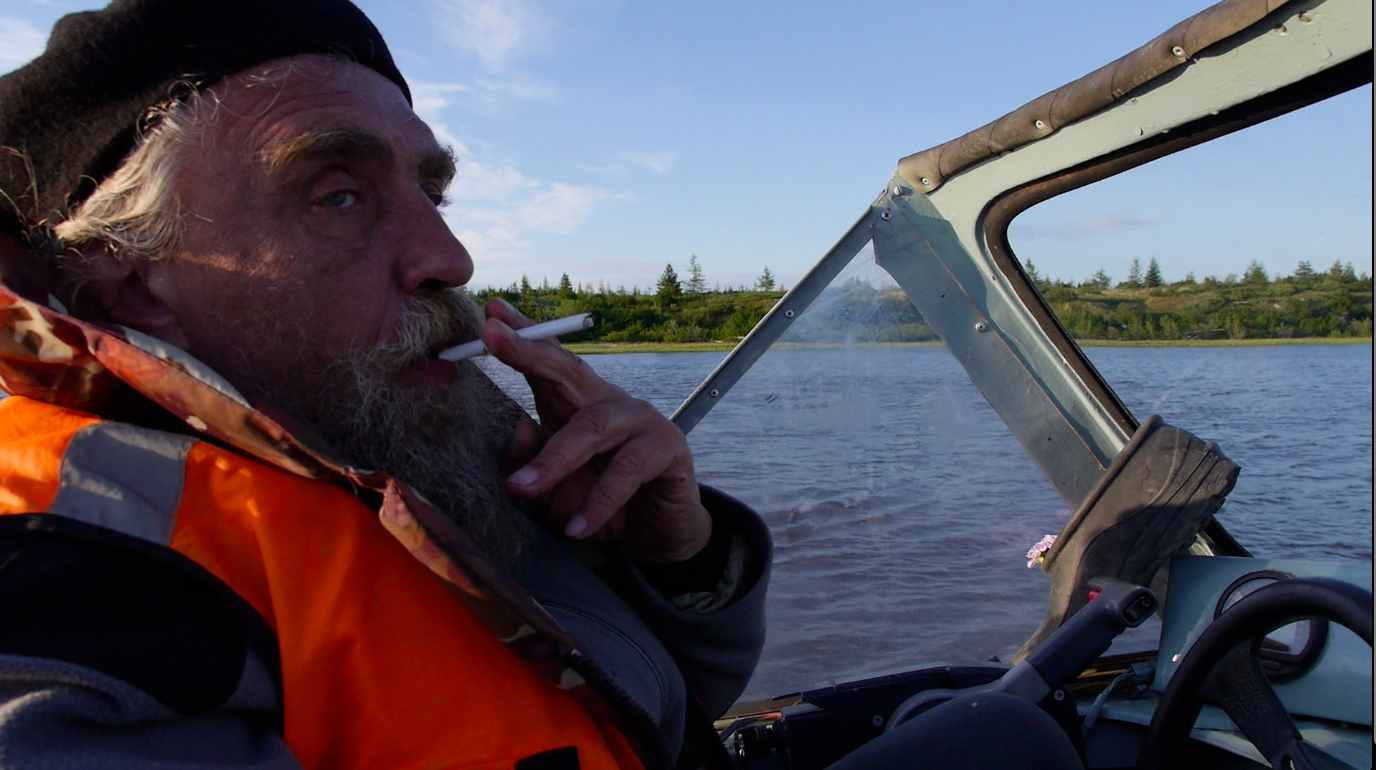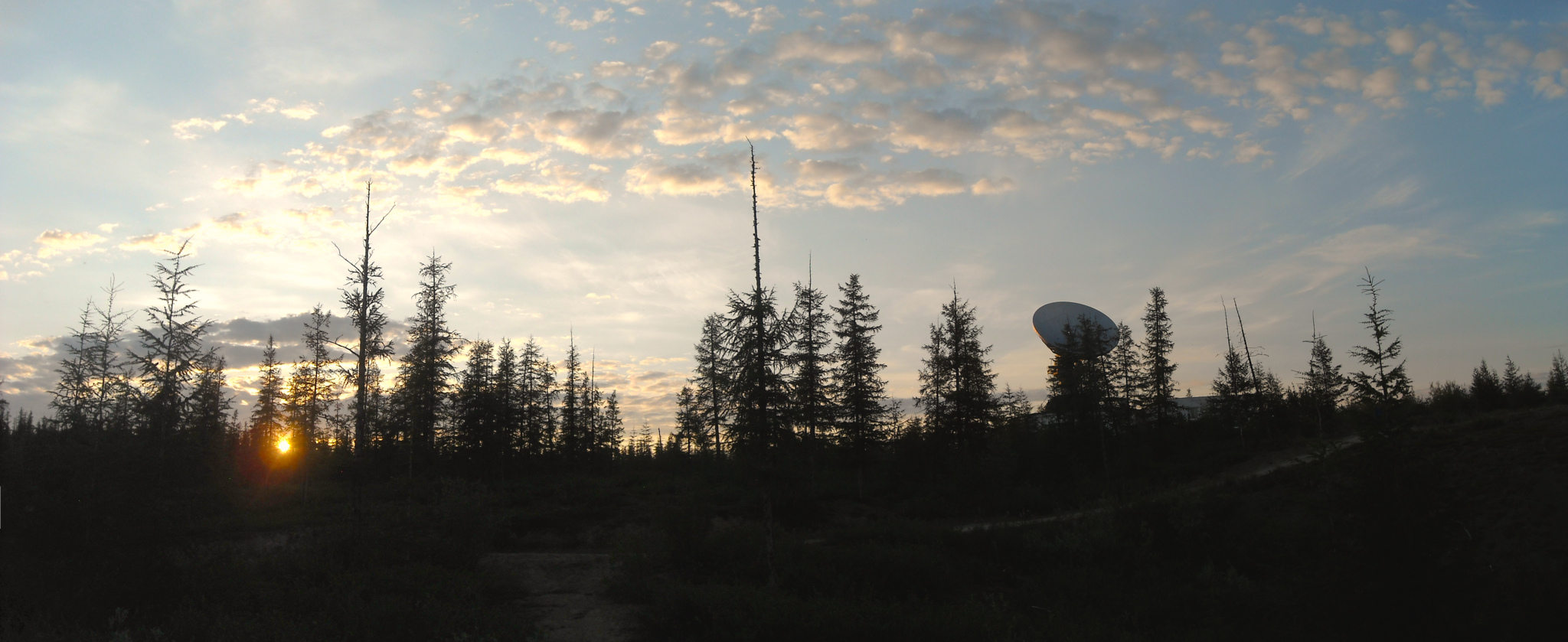
CHERSKIY, RUSSIA—I've come three-quarters around the planet to see a peculiar, important, unpredictable man: Sergey Zimov. And it's far northeast Siberia—in its own right a peculiar, important and unpredictable place—where he's spent his life studying. Here some of the most remote cities in Russia's vast expanses lie mostly in ruins while the frozen soil, known as permafrost, thaws in front of Zimov's eyes.
Zimov created the Northeast Science Station here in Cherskiy in the early 1980s with two Russian colleagues to study how the Arctic works. Now, housed in a former Soviet satellite television receiver station, the facility serves as a vital outpost for scientists monitoring the rapid changes remaking the far north. Zimov focuses on the worrisome fate of the permafrost which holds roughly two times more carbon than the atmosphere.
In this photograph, taken in the evening as we return, he is wary. Few trees dot the landscape here because we are passing from the taiga, where the air temperature is warm enough for larch trees to grow, to the tundra, where cold temperatures makes vegetation sparse. Zimov believes the fate of these two ecosystems in northern Russia holds the key to future global warming. The yearly thaw is already going deeper and deeper into the soil. In several decades time, he says, the permafrost here will fully thaw and release a massive wallop of greenhouse gases into the atmosphere.
When I met him he asked me two questions. Have I been to the Arctic before? Can I swim? Yes to both, I replied. He'd wanted to take me on a day's journey, a 120-kilometer ride by motor boat on the Kolyma river from the base in Cherskiy to Ambarchik, a weather station on the coast of the Arctic ocean. "When I take my son on the boat he is like a second mate—he knows exactly what to do. Other people—they're like delicate cargo, not so easy to take." We left at 11:00 am and I endeavored to prove my seaworthiness, somehow avoiding seasickness despite the pounding of the boat on the waves and taking my turn at the wheel as our return journey stretched past 10:00 pm.
At Ambarchik, Zimov and his German partners are using sophisticated equipment to measure greenhouse gases. We were bringing the four-person Russian meteorological staff at the station, a decaying former Soviet outpost beside the remains of a Stalin-era prison camp, a new queen sized mattress, freezer and flat screen TV. Arctic science is not cheap, but that seems like a bargain for data that might foretell the future of the planet.





